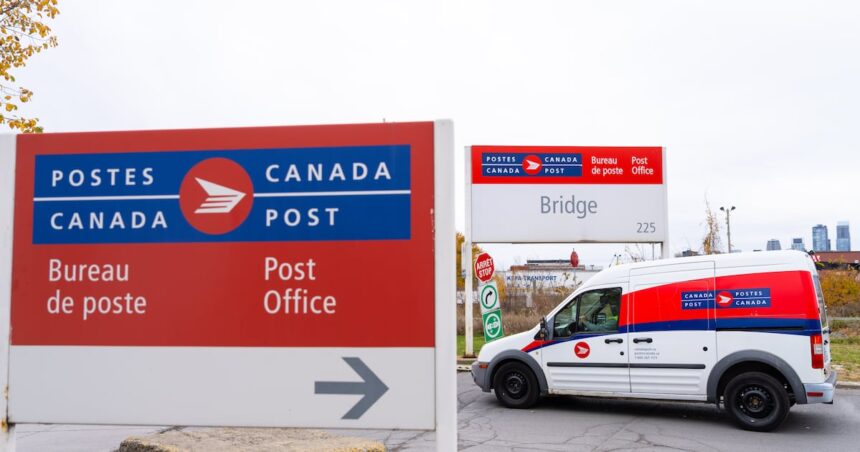In a significant development that offers partial relief to Canada’s postal system, Canada Post has successfully reached a tentative agreement with its second-largest union while negotiations with the larger Canadian Union of Postal Workers (CUPW) remain ongoing amid growing tension. This breakthrough comes at a critical juncture as Canadians increasingly rely on delivery services in our digital economy.
The crown corporation announced yesterday that it has finalized terms with the Public Service Alliance of Canada (PSAC), representing approximately 1,800 technical and administrative employees. The four-year agreement includes wage increases averaging 3.2% annually and improved health benefits, signaling Canada Post’s willingness to address key worker concerns in the current economic climate.
“This agreement represents a balanced approach that recognizes the contributions of our dedicated employees while ensuring the long-term sustainability of Canada Post,” said Patricia McKinnon, Chief Human Resources Officer at Canada Post. “We believe this sets a positive tone for our ongoing discussions with other bargaining units.”
However, the path forward remains uncertain with CUPW, which represents over 50,000 postal workers across the country. Negotiations with CUPW have proven more challenging, with the union demanding substantial improvements to working conditions, job security provisions, and wage increases that exceed what management has offered thus far.
CUPW President Derek Richmond expressed cautious optimism but remained firm on the union’s position. “While we’re encouraged by progress with other bargaining units, our members face unique challenges that must be addressed. The explosion of parcel volumes has fundamentally changed the nature of postal work, and our collective agreement needs to reflect that reality.”
Industry analysts point to several factors complicating these negotiations. Canada Post has faced financial pressures in recent years, reporting a $779 million loss in its most recent fiscal year as traditional letter mail continues its steady decline. Meanwhile, competition in the parcel delivery sector has intensified with private companies capturing significant market share.
Labour Minister Sandra Bellisario has been monitoring the situation closely but has thus far resisted calls to intervene. “We believe in the collective bargaining process and encourage both parties to work toward a solution that serves Canadian businesses, consumers, and postal workers,” she stated in a press conference yesterday.
For Canadian businesses and consumers, the stakes of these negotiations extend beyond mail delivery. The e-commerce sector, which now accounts for nearly 14% of retail sales in Canada, relies heavily on efficient postal services. Any disruption could have cascading effects throughout the economy, particularly for small businesses that lack alternative shipping arrangements.
Economic experts estimate that a full postal disruption could cost the Canadian economy upwards of $250 million per week, with rural and remote communities bearing a disproportionate impact. These communities often have fewer delivery alternatives and rely more heavily on Canada Post for essential services.
As negotiations continue, both sides face mounting pressure to reach an agreement before the current contract expires on July 31st. The federal government has indicated it is prepared to take action if necessary to protect essential mail services, though the form such intervention might take remains unclear.
The question now facing Canadians is whether this initial agreement signals a path toward broader labour peace at Canada Post, or whether we are witnessing the calm before a potentially disruptive storm in our national postal system. As our economy increasingly depends on reliable delivery services, can we afford the uncertainty that comes with prolonged labour disputes in essential services?














